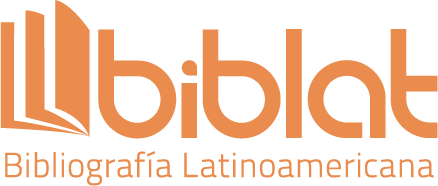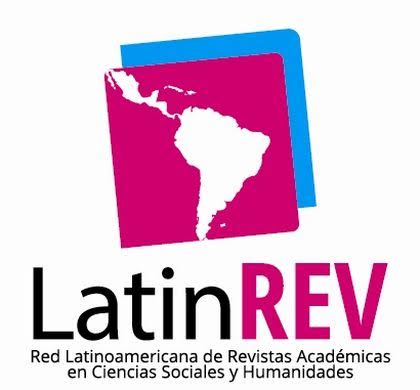Analysis of Moodle tools usage experience from Google Classroom through an unified authentication scheme
DOI:
https://doi.org/10.32870/punto.v1i17.172Keywords:
Moodle, Google Classroom, plataform integration, unified authenticationAbstract
The Covid-19 pandemic has prompted educational organizations around the world to seek options that allow them to continue teaching and learning processes through the use of technologies, which can provide tools that help carry out planned activities in virtual educational environments in the best possible way. The use of Learning Management Systems or LMS, also known as platforms, has gradually increased, and the use of different technological tools has become widespread. When opting for the use of an LMS, it may be the case that not all the tools required are available on the platform; that is why this work presents the result, from the perception of students in a high school educational community, regarding their experiences as users in the integration of two LMS platforms: Google Classroom and Moodle, with a unified authentication scheme, that is, using Google credentials to interact in both and thus take advantage of the benefits of using a type of quiz activity in Moodle invoked or linked from Google Classroom in four high school physics courses. The methodological design used is exploratory quantitative type, in which a survey-type instrument was developed with the objective of knowing students’ perception when working on some of the activities established in their Physics courses from the Google Classroom system, keeping track of mathematical results in Moodle.
References
Autenticación OAuth 2—MoodleDocs. (s/f). Recuperado el 4 de octubre de 2022, de https://docs.moodle.org/all/es/Autenticaci%C3%B3n_OAuth_2
Chiñas-Palacios, C., Vargas-Salgado, C., Águila-León, J., & García, E. X. M. (2019). Zoom y Moodle: Acortando distancias entre universidades. Una experiencia entre la Universidad de Guadalajara, México y la Universidad Libre de Colombia. IN-RED 2019.
Cruz, C. E. Z., Colado, A. Z., Ocegueda, A. T. S., & Escobedo, R. M. V. (2020). Análisis crítico de ambientes virtuales de aprendizaje. Utopía y Praxis Latinoamericana, 25(Esp.11), 33–47. https://www.redalyc.org/journal/279/27964922003/html/
Kiran, Moodle or Google Classroom—What’s better? (2020, septiembre 4). https://edwiser.org/blog/moodle-vs-google-classroom/
LEOBARDO CUEVAS-ÁLVAREZ, JESÚS VACA -CORTÉS, BLANCA M IRIAM TORRES -MENDOZA, VALERIA DÍAZ -RIZO, EFRAÍN C HAVARRÍA-Á VILA, & R AÚL MALDONADO -RODRÍGUEZ. (2022). Educación en tiempos de pandemia: Análisis sobre el impacto en instituciones educativas, alumnos y procesos educativos. Contenido/Summary, 27.
Mamani, F. de M. C., & Huamaní, C. G. A. (2021). Herramientas Digitales para Entornos Educativos Virtuales. LEX - REVISTA DE LA FACULTAD DE DERECHO Y CIENCIAS POLÍTICAS, 19(27), Art. 27. https://doi.org/10.21503/lex.v19i27.2265
Parmar, Amit. (2017). Moodle and Google classroom: Assistant in modern classroom teaching.
Rincón, M. L. (2008). Los entornos virtuales como herramientas de asesoría académica en la modalidad a distancia. Revista Virtual Universidad Católica del Norte, 25. https://www.redalyc.org/articulo.oa?id=194215513009
Segura Lazcano, G. A., Vilchis Torres, I., Segura Lazcano, G. A., & Vilchis Torres, I. (2021). Sociedad escolar y pandemia en México; la educación en línea: De refugio temporal a definitivo. Apertura (Guadalajara, Jal.), 13(2), 142–157. https://doi.org/10.32870/ap.v13n2.2006
Servicio OAuth 2 Google—MoodleDocs. (s/f). Recuperado el 1 de octubre de 2022, de https://docs.moodle.org/all/es/Servicio_OAuth_2_Google
Tutiven, L. R. Y., Salazar, M. E. R., & Palacios, V. del R. S. (2021). Entornos Virtuales como soporte en la educación on-line durante la pandemia. RECIAMUC, 5(4), Art. 4. https://doi.org/10.26820/reciamuc/5.(4).noviembre.2021.2-12
UDGVirtual, fundamental durante pandemia en capacitación para toda la Red Universitaria | Universidad de Guadalajara. (s/f). Recuperado el 1 de octubre de 2022, de https://www.udg.mx/es/noticia/udgvirtual-fundamental-durante-pandemia-en-capacitacion-para-toda-la-red-universitaria
Published
How to Cite
Issue
Section
License
Copyright (c) 2023 Rubén Yáñez Reyna, Paola Mercado Lozano

This work is licensed under a Creative Commons Attribution-NonCommercial 4.0 International License.
Los autores/as que publiquen en esta revista aceptan las siguientes condiciones:
De acuerdo con la legislación de derechos de autor, Punto Cunorte reconoce y respeta el derecho moral de los autores, así como la titularidad del derecho patrimonial. Bajo la iniciativa de Budapest de acceso abierto, el autor otorga derechos conexos a la Universidad de Guadalajara, al Centro Universitario del Norte y a la revista Punto Cunorte para su difusión en acceso abierto. Punto Cunorte no realiza cargos a los autores por enviar y procesar artículos para su publicación.
Los autores/as pueden realizar otros acuerdos contractuales independientes y adicionales para la distribución no exclusiva de la versión del artículo publicado en Punto Cunorte (por ejemplo incluirlo en un repositorio institucional o publicarlo en un libro) siempre que indiquen claramente que el trabajo se publicó por primera vez en Punto Cunorte.
Esta obra está bajo una Licencia Creative Commons Atribución-NoComercial 4.0 Internacional.













